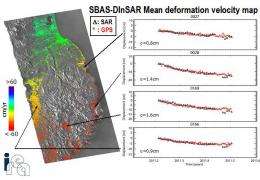Big science teams up with big business to kick-start European cloud computing

Today a consortium of leading IT providers and three of Europe’s biggest research centres (CERN, EMBL and ESA) announced a partnership to launch a European cloud computing platform. "Helix Nebula - the Science Cloud", will support the massive IT requirements of European scientists, and become available to governmental organisations and industry after an initial pilot phase.
The partnership is working to establish a sustainable European cloud computing infrastructure, supported by industrial partners, which will provide stable computing capacities and services that elastically meet demand.
This pan-European partnership across academia and industry is in line with the Digital Agenda of the European Commission and will foster innovation for science and create new commercial markets.
During a two-year pilot phase, Helix Nebula will be deployed and tested based on three flagship projects proposed by CERN, EMBL and ESA: to accelerate the search for the elusive Higgs particle, to boost large-scale genomic analyses in biomedical research, and support research into natural disasters.
First, CERN, the European laboratory for particle physics, will have access to more computing power to process data from the international ATLAS experiment at its Large Hadron Collider accelerator.
“CERN’s computing capacity needs to keep-up with the enormous amount of data coming from the Large Hadron Collider and we see Helix Nebula- the Science Cloud as a great way of working with industry to meet this challenge,” said Frédéric Hemmer, head of CERN’s IT department.
Second, the European Molecular Biology Laboratory (EMBL) is setting up a new service to simplify the analysis of large genomes, such as those from mammals, allowing a deeper insight into evolution and biodiversity across a range of organisms.
“The quantities of genomic sequence data are vast and the needs for high performance computing infrastructures and bioinformatics expertise to analyse these data pose a challenge for many laboratories. EMBL’s novel cloud-based whole-genome-assembly and annotation pipeline involves expertise from the Genomics Core facility in Germany, EMBL’s European Bioinformatics Instituteand EMBL Heidelberg's IT Services. It will allow scientists, at EMBL and around the world, to overcome these hurdles and provide the right infrastructure on demand,” said Rupert Lueck, head of IT services at EMBL.
Third, the European Space Agency (ESA), in partnership with the Centre National d’Etudes Spatiales (CNES) in France, and the German Aerospace Center (DLR) is collaborating with the National Research Council (CNR)in Italy, to create an Earth observation platform focusing on earthquake and volcano research.
This undertaking is done in the framework of the Group on Earth Observations (GEO), a voluntary partnership of governments and international organisations. Volker Liebig, ESA Director for Earth observation programmes, said, “Helix Nebula- the Science Cloud is a partnership with the potential to support an utmost exploitation of ESA satellite data, as well as to bring other communities on board to better understand the geophysical phenomena of our planet.”
The commercial partners are Atos, Capgemini, CloudSigma, Interoute, Logica, Orange Business Services, SAP, SixSq, Telefonica, Terradue, Thales, The Server Labs and T-Systems, along with the Cloud Security Alliance, the OpenNebula Project and the European Grid Infrastructure (EGI.eu). They are working together to establish a federated and secure high-performance computing cloud platform.
Provided by CERN


















